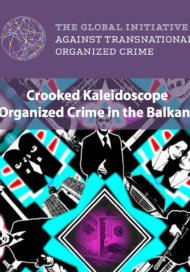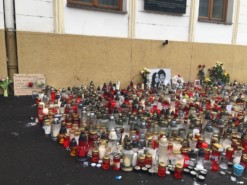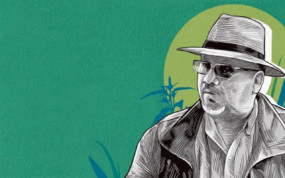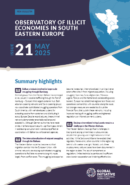Posted on 04 Sep 2018
On 30 August, in the early hours of the morning, Albanian journalist Klodiana Lala was targeted by gunmen while she was in her father’s home in Tirana. According to the police, the criminals opened fire 30 metres outside of the building, spraying bullets at the house. Family members of the crime reporter rushed outside as the assailants continued firing. It appears that the unidentified perpetrators then left the scene on foot. Several family members of the journalist were inside the house at the time, including her parents, brother and sister. There were no casualties.
In a short statement on social media, Lala said that she suspected that the attack had targeted her and had been precipitated by her work as a journalist.
The attack has sparked public outcry, many protesting in front of the prime minister’s office. International institutions have also condemned the attack. The Organization for Security and Co-operation in Europe’s representative on freedom of the media, Harlem Désir, said the attack was a direct threat aimed at intimidating the journalist, and that it had added to the climate of fear and insecurity that already threatens the press in the region. The US Embassy described the attack as ‘cowardly’ and that it shows that ‘criminals are afraid as Albania progresses toward real justice’.
The Union of Albanian Journalists also condemned the act, asking Albania’s political leaders to respond immediately and ensure protection for journalists.
Both sides of the political spectrum were quick to support the targeted journalist, calling for the perpetrators to be quickly brought to justice. Meanwhile, a special investigative team has been set up to look into the case.
Although the reaction from the Albanian authorities and the public in support of Lala is heartening, what remains deeply disturbing is that this incident is far from isolated. There is a growing incidence of attacks on journalists covering issues related to organized crime and corruption in the region, and in Europe more broadly.
In June 2018, another Albanian investigative journalist, Dashamir Biçaku, was threatened by members of an organized-crime group active in the southern town of Vlorë. Although Biçaku reported the incident to the local prosecuting authorities, his case has not been filed. It is alleged that one of the men involved is a relative of a prosecutor in the district of Vlorë.
The attack on Lala also comes after investigative reporter Olivera Lakić was shot and injured in Montenegro in May 2018. Earlier, Stevan Dojčinović, an investigative journalist based in Belgrade and editor-in-chief of KRIK, a local crime-reporting network, was the victim of a series of attacks in February.
Alarmingly, there have also been a number of recent targeted killings of journalists in the region and beyond. In October 2017, prominent investigative journalist Daphne Caruana Galizia was killed in a bomb explosion in Malta. Five months later, Jan Kuciak was killed, together with his fiancée, Martina Kusnirova, in Slovakia. Kuciak was killed while investigating transnational links between organized crime, business and political elites. In 2017, no fewer than seven investigative journalists were killed in Mexico. Earlier, the murders of 11 French journalists shocked the world in 2015.
The Global Initiative Against Transnational Organized Crime strongly condemns the attack on Klodiana Lala, and the growing threat from organized crime to investigative journalists in the region and elsewhere. We need an independent press, free from the influence of criminal and political actors, to be able to expose those who undermine the rule of law. Without the spotlight of the media, ‘democracy dies in darkness’.
It is ironic that the attempt on Lala’s life happened as the 18th annual conference of the European Society of Criminology got under way in neighbouring Bosnia and Herzegovina, where talks were taking place on the nature of organized crime in the Balkans. Criminal syndicates are deeply intermeshed with Albania’s political economy, and, as the GI has reported in the past, such groups are connected to political elites, blurring the boundaries between business, politics and crime in a complex web. They may have the outward veneer of what purports to be legitimate business or investment interests, but these conceal mafia-like activities beneath the surface. Violence, or the threat of it, in the form of corruption, killing and blackmail, is the enforcement mechanism of this criminal complex. In the case of Lala, the message was unequivocal: it was an attempt to silence an outspoken critic of the Albanian criminal network.
Journalists who expose these forms of organized crime are increasingly on the front line in the fight against organized crime and are becoming the target of such threats. The GI supports investigative journalists and researchers across the globe who work – often at their own great personal risk – to uncover organized crime and the threat it poses to democracy.
The GI intends to continue closely monitoring the risk that organized crime poses in the Western Balkans. In July, the UK government announced a package of measures to help improve security and stability in the region. Among these measures is the proposed launch of the Balkans Organized Crime Observatory (jointly with the Austrian and Norwegian governments). The observatory, which will be established by the GI, will serve as a virtual network for civil-society actors to expose and report on serious organized crime and corruption in the region. The observatory proposes sharing research and good practice, and to improve strategic and operational coordination in the region in the fight against organized crime.
One of the challenges in Albania is that there is a pervasive fear of powerful criminal groups. For investigative journalists like Klodiana Lala, reporting on crime clearly poses a threat to personal security. In this context, the GI hopes that the observatory will provide support for media and research activities, which are an essential part of exposing the political-criminal complicity in the region, and ultimately to help build a more peaceful, prosperous and democratic Western Balkans.
image ©: Chris J. Parsons Photography, www.chrisjparsonsphotography.com



